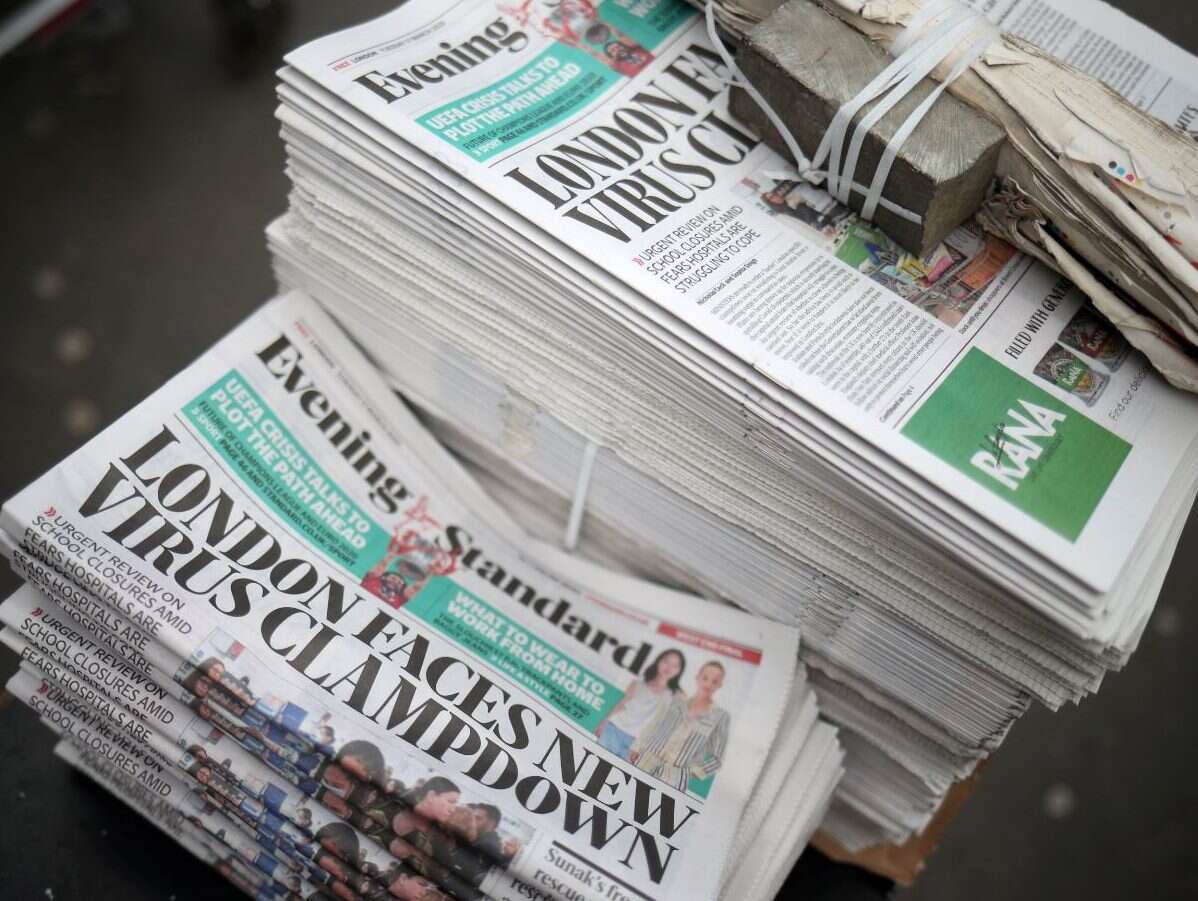
The Evening Standard intends to go from a daily print schedule to weekly, its directors have told staff.
Chairman Paul Kanareck wrote to employees on Wednesday morning saying the “substantial losses” Evgeny Lebedev-owned Evening Standard Limited has accrued in recent years require it to “reshape the business”.
Alongside the creation of a “new weekly newspaper” to replace the daily Evening Standard, Kanareck told staff the proposal “and any impact on staffing” will be subject to a consultation process.
Short commuting weeks and Wi-Fi have damaged viability, says Evening Standard chairman
The Standard’s most recent Companies House accounts, published in August, showed it suffered its sixth straight year of losses in the year to 2 October 2022, recording a £16.4m pre-tax loss.
Kanareck wrote to staff on Wednesday: “Shorter commuting weeks, widespread Wi-Fi along our commuting routes and the desire for our readers to consume ever-richer content across a variety of platforms and devices, all make evolution a prerequisite of viability.
“The substantial losses accruing from the current operations are not sustainable.”
The Standard shifted from a paid to a free model in 2009 nine months after it was acquired by the Lebedev family.
As a freesheet, the Evening Standard's business model is built on attracting advertisers with the promise of reaching masses of readers, many of them commuters. The Covid lockdowns and persistently lower commuter traffic ever since have significantly damaged this model.
Fellow freesheet City AM was forced to end its Friday print edition in January 2023 before going into administration in July of the same year - but was subsequently bought out of administration by online retailer THG and has stabilised its Monday to Thursday distribution.
The Standard reported an average distribution per issue of 274,538 to ABC in April, down 12% year-on-year and 1% month-on-month. Ten years ago, in April 2014, it had an average distribution of 897,610.
The new proposed weekly Evening Standard, Kanareck wrote, will feature "more in-depth analysis of the issues that matter to Londoners, and serve them in a new and relevant way by celebrating the best London has to offer, from entertainment guides to lifestyle, sports, culture and news and the drumbeat of life in the world’s greatest city".
These changes, he said, will "reinforce the relationship between our 24/7 digital platforms and our weekly publication", adding that the forthcoming consultations will also "consider options for retaining ES Magazine with reduced frequency".
Thursday will mark one year since Evening Standard editor Dylan Jones was announced as the new leader of the free paper.
Jones, the former editor-in-chief of British GQ, has brought more of a magazine style to the Standard, for example replacing its traditional news-led front page with single photographs or editorial cartoons.
Jones told the Society of Editors conference this month that he "never" reads print newspapers.
Evening Standard changes aim 'to replicate our previous success with The Independent'
Kanareck said in his note: “Although, this process may be unsettling, our goal is to replicate our previous success with our sister title, The Independent, which has seen enduring growth in readership and commercial success following its own strategic transition in 2016.”
In 2016 The Independent became the first and to date only UK national newspaper to go online-only. The publication has, in contrast with the Standard, subsequently recorded profit for each of the last six financial years.
Following on from Kanareck's message, an email from the Evening Standard HR team told staff that "at this stage while we do not yet know the exact impact of the changes" and said the business is pre-emptively seeking "to put in place a sound consultation structure for when further details are announced".
Because the Evening Standard has no National Union of Journalists chapel to represent staff, the company has opened a nomination process seeking nine employee representatives to be the face of staff amid the consultation on the paper's future.
Press Gazette understands the publication employs approximately 140 people in editorial roles.
As a weekly free publication, the new Evening Standard would follow in the footsteps of Time Out, a weekly London-focused magazine which shifted from a paid to a free model in 2012. Time Out similarly faced significant financial disruption during the pandemic, and ultimately published its final regular print edition in June 2022.
Several regional and city newspapers switched from daily to weekly operations between 2007 and 2013, including the Birmingham Post, the Liverpool Post and the Bath Chronicle.
Email pged@pressgazette.co.uk to point out mistakes, provide story tips or send in a letter for publication on our "Letters Page" blog
